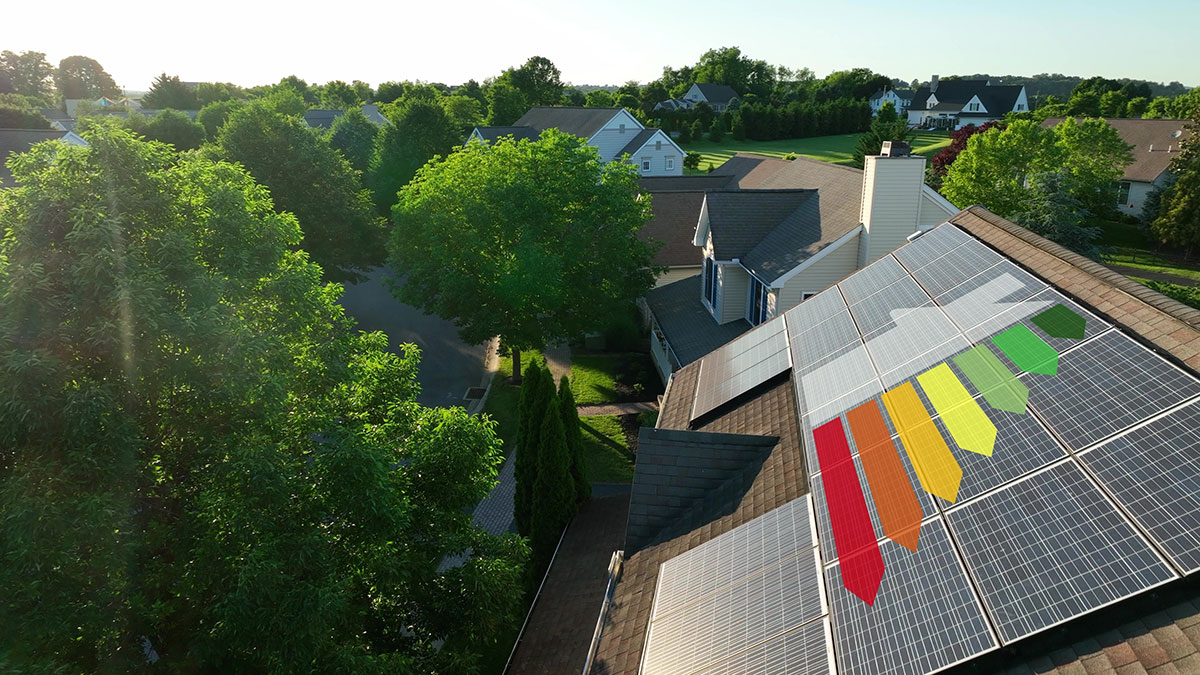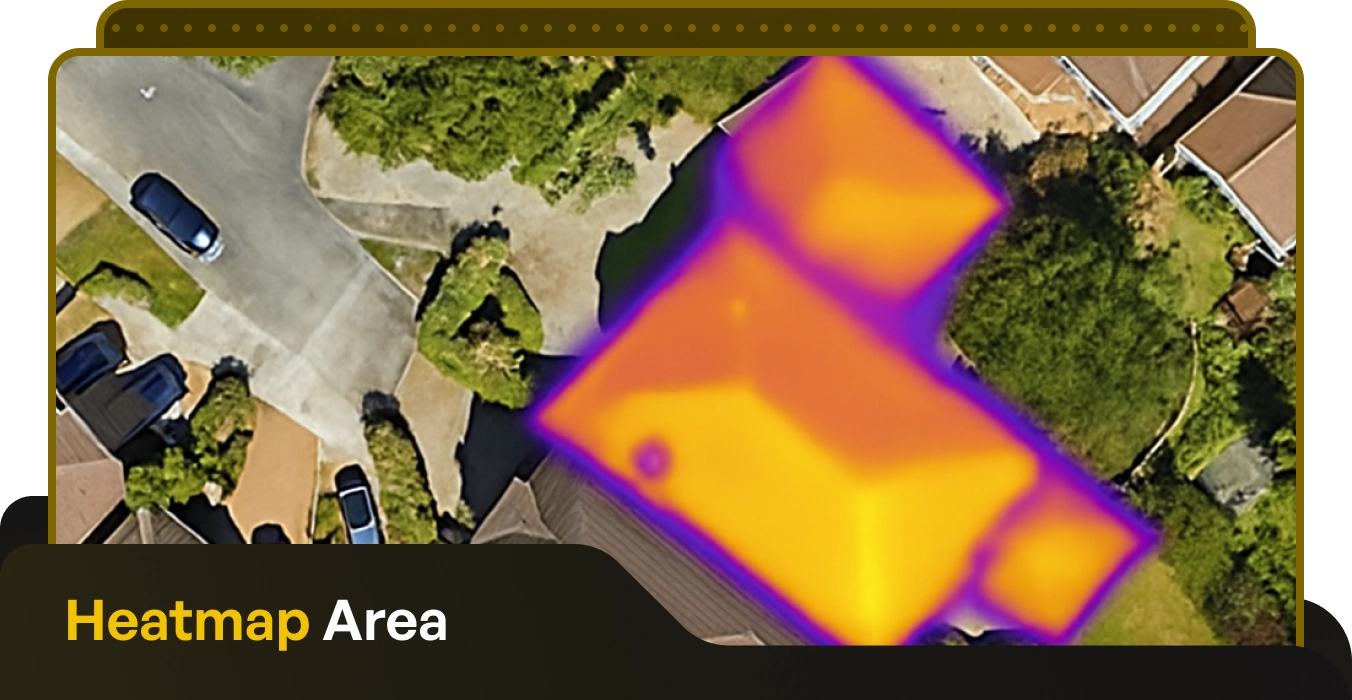Should new homes be required to have solar panels?
Should newly built homes in Ireland be required to have solar panels installed to help improve renewable energy generation and reduce greenhouse gas emissions?
More and more homes in Ireland are opting to get solar panels installed on their rooftops to help reduce their electricity bills and carbon footprint at the same time.
With electricity prices in Ireland still among the highest in Europe, and an urgent need to cut our dependency on fossil fuels, should it be made a requirement for developers to install solar panels?
What do people think?
We asked people if they thought that new homes in Ireland should be required to have solar panels installed.
Out of 428 responses to the poll, 79% said that they believed that it should be a requirement, and 21% of respondents were against such a requirement.
Among the reasons why people were opposed is the added cost that this would bring for house prices in Ireland at a time when property is already extremely expensive.
The Cost of Solar Panels in Ireland
The cost to homeowners of getting 12 solar panels, roughly the average system size most homes install in Ireland, will come to approximately €6,500 – €7,100 after the SEAI.
However, this is the price range for an individual homeowner, and the cost would likely be smaller if solar panels were being installed en masse in housing developments.

A domestic solar PV system can pay for itself in roughly seven years, depending on the size of the system installed, meaning that the added expense would be rapidly recuperated in reduced electricity costs for the owners.
Current Government Incentives
The main incentive for the adoption of rooftop solar in Ireland is the SEAI Solar PV grant. This currently offers up to €1,800 per property for the installation of solar panels.
However, one major weakness in the grant programme is that only properties which were built and occupied before 2021.
There is a reason for this: prioritising government spending on making older homes more energy efficient rather than newer homes, which already come with more stringent energy efficiency requirements.
However, it does leave a growing body of homes in Ireland which are not eligible for the SEAI grant if people want to make their homes even more energy efficient.
And while new homes may require far less energy to heat, they are more likely to rely on electricity to do so rather than oil or gas, giving homeowners a strong incentive to want to reduce their electricity consumption.
Higher Residential Electricity Demand
Another fact to consider is that domestic electricity consumption will likely increase as electricity becomes the main source of power for heating, replacing gas and oil boilers.
Older homes, not suitable for a heat pump without massive renovations, may find it easier to replace an old gas or oil boiler with an electric boiler. Far less efficient than a heat pump and uses considerably more energy.
The growing adoption of electric vehicles will also see the amount of electricity used in our homes skyrocket.

The least expensive way to charge an electric car is using a home charger. Much of this will be done at night, when electricity is cheaper and there is less demand on the grid, but it remains a significant expansion.
The current accepted standard for average household electricity use in Ireland is 4,200kWh a year, or 11.5kWh per day.
Someone who drives an electric car even a moderate amount, and does the majority of their charging at home, could easily see their household electricity consumption double.
The Climate Action Plan makes the point that the deployment of renewables needs to exceed the growth in demand for electricity if there is to be any absolute reduction in emissions from the electricity sector. This is as true for the residential sector as it is for industry.
EU Solar Regulations
Ireland will have to implement a law mandating solar panels on new homes before the end of the decade at any rate, so there is no reason to wait until the last second to begin planning for such an occurrence.
The EU’s Solar Energy Strategy, adopted into law in March 2024, sets legally binding targets for the integration of solar panels into new buildings starting from next year.
New public and commercial buildings with a “useful floor space” of 250m² or more must install solar panels from 2026, and all existing such buildings must do the same by 2027.
New homes will be required by EU law to come with rooftop solar panels installed by 2029. But why should we wait until practically the end of the decade?
The UK has already announced plans to require solar panels on new homes from 2027 onwards, so why shouldn’t Ireland follow suit and start
The government already intervenes in the building sector in the name of energy efficiency by requiring new build homes to achieve a BER of A2 at least.
Gas boilers have also been banned in new build homes as of 2025, following on from a ban on oil boilers in new homes in 2022.
With the government already mandating certain heating system requirements, it is hardly a leap to also require the inclusion of solar power.

Solar Energy Targets
Rather than just taking into account making homes more energy efficiency, rooftop solar should be looked at as part of Ireland energy infrastructure.
SEAI figures show that approximately 160MW worth of solar capacity was installed on residential properties alone last year.
That’s as much as all but the largest of solar farms operating in the country, and it was done without the need for a years long process of seeking suitable land and financing, before we even talk about the infernal prison that is Ireland’s planning process.
The Climate Action Plan sets a target of 8GW of total solar energy capacity by 2030, alongside targets of at least 9GW of onshore wind and 5GW of offshore wind.
These renewables targets include 1.6GW of microgeneration capacity, meaning any renewable energy system of 50kW or less.
This will mostly come down to solar power, since it is better suited to small scale installations than wind energy.
Last year, more than 21,500 new houses were completed in Ireland, along with just over 8,700 apartments.
Even just including the houses, it would still add more than two-thirds of additional capacity to the 29,000 homes which installed rooftop solar panels in 2024.
Given the inevitability of the fact that Ireland will have to make solar panels mandatory on new homes before the decade is out, we should ask if the government should go ahead with such plans sooner rather than later. Looking at the costs and benefits for the country, and for individual homeowners.
Should new homes be required to have solar panels?
Published: May 10, 2025
Last updated: October 8, 2025

Written by: Briain Kelly
Reading time: 4mins
Should newly built homes in Ireland be required to have solar panels installed to help improve renewable energy generation and reduce greenhouse gas emissions?
More and more homes in Ireland are opting to get solar panels installed on their rooftops to help reduce their electricity bills and carbon footprint at the same time.
With electricity prices in Ireland still among the highest in Europe, and an urgent need to cut our dependency on fossil fuels, should it be made a requirement for developers to install solar panels?
What do people think?
We asked people if they thought that new homes in Ireland should be required to have solar panels installed.
Out of 428 responses to the poll, 79% said that they believed that it should be a requirement, and 21% of respondents were against such a requirement.
Among the reasons why people were opposed is the added cost that this would bring for house prices in Ireland at a time when property is already extremely expensive.
The Cost of Solar Panels in Ireland
The cost to homeowners of getting 12 solar panels, roughly the average system size most homes install in Ireland, will come to approximately €6,500 – €7,100 after the SEAI.
However, this is the price range for an individual homeowner, and the cost would likely be smaller if solar panels were being installed en masse in housing developments.

A domestic solar PV system can pay for itself in roughly seven years, depending on the size of the system installed, meaning that the added expense would be rapidly recuperated in reduced electricity costs for the owners.
Current Government Incentives
The main incentive for the adoption of rooftop solar in Ireland is the SEAI Solar PV grant. This currently offers up to €1,800 per property for the installation of solar panels.
However, one major weakness in the grant programme is that only properties which were built and occupied before 2021.
There is a reason for this: prioritising government spending on making older homes more energy efficient rather than newer homes, which already come with more stringent energy efficiency requirements.
However, it does leave a growing body of homes in Ireland which are not eligible for the SEAI grant if people want to make their homes even more energy efficient.
And while new homes may require far less energy to heat, they are more likely to rely on electricity to do so rather than oil or gas, giving homeowners a strong incentive to want to reduce their electricity consumption.
Higher Residential Electricity Demand
Another fact to consider is that domestic electricity consumption will likely increase as electricity becomes the main source of power for heating, replacing gas and oil boilers.
Older homes, not suitable for a heat pump without massive renovations, may find it easier to replace an old gas or oil boiler with an electric boiler. Far less efficient than a heat pump and uses considerably more energy.
The growing adoption of electric vehicles will also see the amount of electricity used in our homes skyrocket.

The least expensive way to charge an electric car is using a home charger. Much of this will be done at night, when electricity is cheaper and there is less demand on the grid, but it remains a significant expansion.
The current accepted standard for average household electricity use in Ireland is 4,200kWh a year, or 11.5kWh per day.
Someone who drives an electric car even a moderate amount, and does the majority of their charging at home, could easily see their household electricity consumption double.
The Climate Action Plan makes the point that the deployment of renewables needs to exceed the growth in demand for electricity if there is to be any absolute reduction in emissions from the electricity sector. This is as true for the residential sector as it is for industry.
EU Solar Regulations
Ireland will have to implement a law mandating solar panels on new homes before the end of the decade at any rate, so there is no reason to wait until the last second to begin planning for such an occurrence.
The EU’s Solar Energy Strategy, adopted into law in March 2024, sets legally binding targets for the integration of solar panels into new buildings starting from next year.
New public and commercial buildings with a “useful floor space” of 250m² or more must install solar panels from 2026, and all existing such buildings must do the same by 2027.
New homes will be required by EU law to come with rooftop solar panels installed by 2029. But why should we wait until practically the end of the decade?
The UK has already announced plans to require solar panels on new homes from 2027 onwards, so why shouldn’t Ireland follow suit and start
The government already intervenes in the building sector in the name of energy efficiency by requiring new build homes to achieve a BER of A2 at least.
Gas boilers have also been banned in new build homes as of 2025, following on from a ban on oil boilers in new homes in 2022.
With the government already mandating certain heating system requirements, it is hardly a leap to also require the inclusion of solar power.

Solar Energy Targets
Rather than just taking into account making homes more energy efficiency, rooftop solar should be looked at as part of Ireland energy infrastructure.
SEAI figures show that approximately 160MW worth of solar capacity was installed on residential properties alone last year.
That’s as much as all but the largest of solar farms operating in the country, and it was done without the need for a years long process of seeking suitable land and financing, before we even talk about the infernal prison that is Ireland’s planning process.
The Climate Action Plan sets a target of 8GW of total solar energy capacity by 2030, alongside targets of at least 9GW of onshore wind and 5GW of offshore wind.
These renewables targets include 1.6GW of microgeneration capacity, meaning any renewable energy system of 50kW or less.
This will mostly come down to solar power, since it is better suited to small scale installations than wind energy.
Last year, more than 21,500 new houses were completed in Ireland, along with just over 8,700 apartments.
Even just including the houses, it would still add more than two-thirds of additional capacity to the 29,000 homes which installed rooftop solar panels in 2024.
Given the inevitability of the fact that Ireland will have to make solar panels mandatory on new homes before the decade is out, we should ask if the government should go ahead with such plans sooner rather than later. Looking at the costs and benefits for the country, and for individual homeowners.
Solar Energy Saves Households Thousands in Electricity Costs
Take our 2-minute questionnaire and find affordable solar options to suit your budget and lifestyle.



